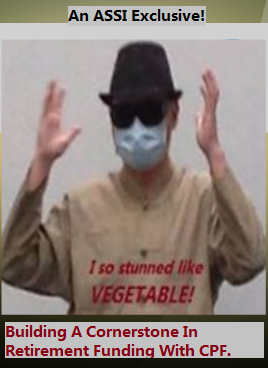UPDATE (December 2016):
I sounded the alarm 4 years ago.
"Many who bought their properties three to four years ago are settling for rents that don't cover their mortgage payment..."
Mortgagee listings this year expected to reach or surpass the 237 recorded in 2015, which exceeded the 236 in 2008 during the global financial crisis. A mortgagee's sale occurs when an owner defaults on the mortgage.
Source:
http://www.straitstimes.com/business/property/more-properties-could-be-up-for-auction-if-interest-rates-bite (8 Dec 16)
-----------------------------------------------------------------------------
8 March 2012
Today, I stumbled upon an interesting if disturbing bit of information. "Online loan" is the hottest in a list of keywords being searched for in Yahoo Singapore! For whatever reasons, Singaporeans are leveraging up or looking to it, it seems.
With the economy almost at full employment, it is harder to imagine people borrowing because they are in dire straits. Then why? They could be borrowing to fund purchases of consumption goods or to put into investments.
I also continue to read articles and see advertisements telling people how they could own real estate with little or no cash. How is this possible?
The low interest rate environment is here to stay for the next couple of years, with what is happening in the USA, Eurozone and Japan. As Dr. Marc Faber said, a low interest rate environment encourages people to take risks. Is this a bad thing?
I have been told by many that a judicious amount of leveraging could magnify the returns from my investments.
So, with zero gearing in my personal balance sheet now, am I a stick in the mud when it comes to leveraging?
I do understand the benefits of leveraging and, indeed, without it, I would not have been able to make money from real estate investments. However, I would leverage sparingly and would try not to take the biggest possible loan or the longest repayment period, given a choice.
On the other hand, savvy investors who know how to exploit low interest rates would probably benefit a lot more. The fear is always in overdoing it. Overdoing it?
Yes, too much of a good thing is probably bad. I am talking about overleveraging, of course.
A simple understanding of overleveraging is a situation when people are borrowing money, hoping to make money but do not have enough capital assets to cover any likely future losses.
The Singapore government is prudent in capping the loan to value limit at 60% for a second mortgage. In the event of a crash in the property market, it is unlikely that property values would decline by more than 40%.
However, some people have purportedly found ways of going around this ruling. Indeed, from their claims, they have probably found ways around any ruling. If we were to do a search online, we would find websites and blogs with such claims. To find out more, however, we would have to pay to attend related seminars.
I would caution that there are reasons for why the cooling measures are here. Whether the reasons are good or not would depend on where we stand.
However, it is obvious to me that the government is sending a clear message that they want property prices in Singapore to lower in the next couple of years, not that they need to do much more to achieve this.
Given the rising vacancy and lowering rentals in the last few months, how would things look when record numbers of condominums are completed over the next few years?
Betting against the government and basic principles of economics, buying more investment properties now, does not seem like a savvy thing to do. Overleveraging would make this worse.
Related posts:
1. Should we be staying invested or in cash?
2. Selling a private property just got harder.
3. Buying a private property as a owner-occupier. Think like an investor.
4. New or resale property?
5. Be a real estate owner the easy way.



















31 comments:
good post.
i feel like we are sitting on a time bomb. it sure make one feel like a fool not to invest. its like giving "ang pow" and not taking it.
the longer it holds, the worst its going to get. i never feel so nervous and at the same time frastrated before.
to me its not worth the risk personally.
Leveraging is good but over Leveraging will pose danger if risk management is not up to par. I applaud the govt in coming up with such measures to mitigate the greed by investors.
Hope that proper cash management is in place for most people.
Keep investing and keep smiling.
Thank you for your article!!
Hi coconut,
I know how you feel.
I sold my properties middle of last year believing that things would likely go downhill in the coming years. Now, I feel somewhat naked. Haha.. ;)
As an investor who has done his homework, I certainly believe that things are likely to look worse by 2014/2015. People who have bought at the high prices last year would likely suffer losses. For those with holding power, it could be just paper losses but losses nonetheless.
As a potential home owner (again), I could buy a property this year, using the gains from selling last year. I might bite if the property is conveniently located and if the development is to my liking.
If the property time bomb ignites, there would be lots of fish floating on the water for the picking. Fishing certainly requires patience. ;p
Hi SPCF,
Hope you don't mind me shortening your name. ;)
Overleveraging suggests that there is zero risk management in place. There is no need to look into whether risk management is up to par in such an instance. ;p
It does not seem like property prices in Singapore ( or for that matter, hk, china, Malaysia, Indonesia etc) is coming down.
There is simply too much liquidity in the market. There is also fear of money losing it value, which is why we are seeing flows into real assets ( in the form of real estate, commodities, ).
I was just looking at gold prices, and noted that there is a correlation between gold & property prices - I the respective currencies. Gold has very limited uses, but presumably a good store of value. Seem like real estate has the same functions as well...
Ana
Hi Ana,
Is it greed or fear that drives people to buy gold and real estate? Many think that it is fear that drives people to buy gold as it does not generate cash flow.
With real estate, is it fear or greed that was driving up prices? As we could possibly get rental income from real estate, is it greed? Could investors be greedy for rental yields at 3 to 4% per annum in Singapore?
My take is that there is probably both fear and greed involved in the higher prices of precious metals world wide and real estate in Singapore.
For sure, I don't know everything but I know that from where we are now, interest rates can't go down much more and rental yields can't go up much more.
Logically, with much higher supply, stalling demand and the cooling measures in place, chances of property prices coming down are higher than them going up.
That's for Singapore. International investors look to hk, china, UK, Australia and Singapore for real estate investments.
As prices in Singapore ease, a logical investor would divert to Singapore instead. So, I think there is a support.....
That said, there are those who equate real estate investment to fishing - where u wait for a long time but returns very rewarding.
I just think there is a new element this time round (low interest rates & heightened fear) that makes this different from the past
Hi Ana,
Many times, I have heard people saying "This time is different." in so many different scenarios. However, more often than not, history would repeat itself.
Recent evidence has shown that foreigners are not buying Singapore residential property as avidly as they were before. Their activity in the resale market has gone placid.
The ABSD, alternative investment options in commercial and industrial properties here are all reasons for the growing weakness.
The logical investor would invest by diverting his money where it would be treated best. Even with a weakening of residential real estate prices in Singapore, when the over supply situation is all too evident, would foreign investors still rush to buy? They might but if they did, they would be buying amidst higher vacancy rate and lower yields.
Agreed ! The risk/reward for property investment in Singapore is not skewed towards the investors. Better not buy unless you really think it's damn cheap ! :)
By the way, you want to write an article or share some opinion on what you think Reits will perform when interest rates goes up. How will it affect the rental etc etc.
Thanks ! :) I'm vested in Reits now you see.. hehe..
Hi WJ,
Long time no hear. Always a pleasure having a BB like you commenting in my blog. ;)
I wrote a piece related to your question some months back. You might be interested in this blog post:
Staying positive on S-REITs.
In an environment of heightened interest rates, we could see distributable income reducing unless REITs are able to increase asking rents by similar quantum.
However, remember that REITs would have ample time to make adjustments because their loans are usually fixed interest rate term loans of 3 years.
As with all investments, there could be a time when REITs might not be a good investment. We would have to cross the bridge when we come to it. :)
Welcome to the S-REITs club. ;)
AK,
No money down can buy property?
I guess if we can do contra trading on shares, property is also game! Provided the prices always heads north ;)
Come to think of it, before the recent US property crash of 2008, NINJA loans were peddled by the US banks - no income; no job? Not a problem! Now that's no money down for you ;)
Short memory of our Asian 97 crisis? I remember seeing lots of unfinished towers in Bangkok and Shanghai then.
I guess no property promoter would bring up Dubai ;)
Hi SMOL,
Yup, that's the claim. Just look at the ads in the newspapers. ;)
Human beings have very short memories. The elephants are one up on us in this department.
Hi Ak71,
Ah, nice metaphor of fishes floating on the water. But those fishes might just be real humans floating on some reservoir after losing chucks of money. Oops! O.O
I believe that the car market would also experience a fall in COE premiums despite LTA's repeated reductions in supply. Hope grab both car and house in 2014/2015. :)
Hi AK 71 and Singapore Man of Leisure,
The no money down investments are referring to overseas investment schemes like those in Malaysia and Philipines.
There is no way you can do no money down in Singapore.
One of the ways is for developer to mark up say approximately 20%, the investor gets an 80% loan and then the developer gives rebate of 20%. Ta-Da! No money down.
However, its usually a gimmick as the main reason they are selling overseas is because the selling price are too expensive to absorbed by the local market.
Calvin
http://www.investinpassiveincome.com
Hi AK,
I'm also on the lookout for property, but the Sg property market is notoriously hard to 'sense' of late. As a report by Jones Lang (summarised and linked to here: http://www.propwise.sg/will-the-upcoming-supply-cause-property-prices-to-fall/) asserts - the URA PPI has little to do with short-term supply and more to do with "sentiment". A touchy-feely thing. Even in my neighbourhood, I can see that asking prices for secondary sales have risen since Dec on the back of the equity markets. Makes little sense to me unless you believe that there are many who've made a killing during the rally and are now looking to park the profits in property.
My personal sense is that it will take an external shock (like dot-com bust, 9/11, SARS, GFC) to cause property prices to drop.
Hi Ak71,
I am wondering whether these vacant units would be occupied by displaced residents as a result of a rapid expansion of our road network. That could be a possibility too. :)
Hi INVS 2.0,
Bedok Reservoir again? ;p
I do not think people would lose lots of money in property here. I expect a correction in price but not a crash. A correction is in the interest of the government but not a crash. ;)
As for COEs, yup, there would be many more COEs available in 2014/2015 if what I have read is accurate. So, with record supply in both COEs and completed condominiums then, you might be spoilt for choice. :)
Hi Calvin,
Yup, when my parents sold their condo in K.L. some time back, I think the buyer did something similar.
However, what I have read and referred to in this blog post is about buying properties in Singapore. Really astounding!
Some claim that they know how to get around the requirements and even the cooling measures imposed by the government. Legally too.
Hi Serendib,
Indeed. A big external shock would create a huge downward pressure.
Without such a shock, I believe prices would take a longer time to drift downwards simply because of an oversupply situation which would become more obvious as more condominiums get their TOPs from now to 2015.
Many who bought condos have no intention of staying in them. Just take a look at the number of properties listed for sale (especially those condominiums which have just received the TOPs or are under construction after being mostly sold). Many bought them for investment purposes.
Oversupply would lead to rentals declining. That would lead to lower valuations.
Some illnesses are swift to kill while some are wasting in nature and would take years to kill the sufferer.
Hi INVS 2.0,
You would have to have 17,000 families displaced by the expansion of road networds to absorb half the supply of new condominiums this year. ;p
Even in the states which is badly affected by subprime, different areas are affected by varying extent. Eg Florida, where there were rampant zero-down type of loans, it is affected badly; meanwhile, in places like San Francisco, it is lesser extent.
In Singapore, (and most of Asia), property investments are a lot more prudent compared to the Asian crisis which was hit by a high interest double whammy.
It will need a major external shock to move prices.... which have increased 50pc or more over the past 5 years.
Hi Ana,
A major shock would not just move prices, it would crash prices. Probability is low but it is a possibility.
What is more probable is a gradual weakening in prices from now through 2014/2015 due to heightening oversupply and a slowing down of population growth through immigration.
Since you brought up interest rates as a consideration, how long do you think the low interest rate environment would continue for?
A person buying a property for owner-occupation might not have the luxury of having time on his side. However, if one is buying a property for investment, waiting a bit more could result in significant savings in dollar terms. Even a 10% savings on a $500,000 price tag is quite significant. :)
Mr Khaw said: "They assume two things. Property prices will keep going (up). Two, interest rates will keep on remaining low. Both are wrong and therefore one day, both will collapse on them. So, if you are over-committed, let's say you can only afford a 3-room flat, (but) you decide to buy five room flat. Yes, based on today's interest rates you can afford a five-room flat. But, when interest rates go up as it will, you will no longer be able to afford a five-room flat and what will happen, your bank will start calling you up to please top up or sell your flat and that's when trouble starts."
In addition, Mr Khaw said the high property prices will not last in the long run.
At the same time, he acknowledged he cannot be certain when and how much prices will come down. He added: "Only when you can get enough buyers who can afford, will prices stay up, if not they will come down. Today because of low interest rates, this bubble is being pushed up and sustained longer than it should have. So, it will collapse in a matter of time and therefore do not think that prices will keep on going up."
Source:
http://news.xin.msn.com/en/singapore/property-buyers-should-consider-future-interest-rate-hikes-khaw
Many new private condominium projects are due to be completed this year, and some analysts expect more investors who have bought these units to start selling them, as private home prices are at an all-time high.
Source:
http://www.channelnewsasia.com/news/business/singapore/more-investors-expected/731728.html
"We believe the risk of a residential property market correction in the next two years is rising, as expected higher interest rates look set to coincide with a large increase in housing supply over 2014-15," Tricia Song, analyst at Barclays wrote in a report on Friday.
Almost 95,000 private units are expected to come on stream over the next five years, alongside 25,000-27,000 public housing flats per annum, according to the Urban Redevelopment Authority.
"Total housing supply could average 40,000 units per annum and peak at 47,000 in 2015 - significantly above the historical average annual supply of 12,300 units," Song said.
"Assuming occupier demand of 15,500 units of private housing per annum, we expect the private vacancy rate to rise from 5.6 percent currently to 9.9 percent in 2016," she added, noting that historically when vacancy rates hit 8 percent, rents and prices start declining.
Singapore’s home prices fell at a faster pace in October, dropping 1.2% from the previous month as evidence builds that the government’s efforts to cool the property market are working.
The city-state’s residential property index fell to 159.1 points last month after declining a revised 0.9% in September, according to the National University of Singapore’s Singapore Residential Price Index. The measure tracking prices in the central region decreased 1.4% in October.
Record home prices amid low interest rates raised concerns of a housing bubble and prompted the city-state to introduce new taxes and higher minimum down payments since 2009 to curb speculation in Asia’s second-most expensive housing market. Home sales have been falling in the past four months after the government imposed new rules in June governing how financial institutions grant property loans to individuals.
“The latest statistics are a reflection of the current measures starting to bite the residential market,” said Alice Tan, head of consultancy and research at Knight Frank LLP in Singapore. “Price quantum is still the key consideration for many prospective homebuyers.”
Bloomberg
RESIDENTIAL property prices in Singapore could fall up to 10 per cent across the board this year, an industry expert said.
Mass market homes could be the hardest hit, with price dives of up to 15 per cent, said Ms Carmen Lee, research head of OCBC Investment Research.
"We see a bit more vulnerability from the mass market segment this year, partly because we believe that the high-end (sector) already corrected more in 2013, hence it could see a slower rate of decline this year," said Ms Lee at an OCBC press briefing yesterday on the outlook for Singapore.
The property sector here is facing a triple whammy: property cooling measures that continue to bite, sizeable new supply coming onstream and looming higher interest rates following the start of the United States Federal Reserve's tapering exercise.
OCBC Investment Research anticipates that some 50,000, 49,700 and 73,600 homes including HDB flats and executive condominiums will come onstream in the financial years 2014, 2015 and 2016 respectively.
OCBC believes there will be demand for about 29,000 homes a year, working on a population of six million by 2020 and average population growth of 86,000 a year from 2014 to 2020.
This figure is far lower than the projected number of new homes.
These factors are likely to bog down the property sector for the next two quarters of this year and for that reason, property stocks on the local bourse could continue to come under selling pressure.
- The Straits Times
The number of mortgagee sales at property auctions in Singapore jumped sharply during the first three months of this year -- a sign that owners in financial difficulty are finding it harder to dispose of their properties.
Bankruptcies in Singapore have also risen, she added, citing statistics from the Ministry of Law that showed the number of people made bankrupt rose by 14 percent to reach 1,992 in 2013.
Source:
http://www.channelnewsasia.com/news/business/singapore/mortgagee-sales-at/1050756.html
A key interest rate that housing loans in Singapore are pegged to rose sharply for a second day, indicating home owners may face higher mortgage payments.
Bloomberg data showed the three-month Singapore Interbank Offered Rate (Sibor) was fixed at 0.62052 per cent at 11.30am on Tuesday (Jan 6), up from 0.57762 per cent on Monday.
Assuming mortgage rates in Singapore rise to 2 per cent from around 1.5 per cent currently, a home buyer with an outstanding loan of S$500,000 and 20 years remaining will need to pay around S$2,530 a month, up from S$2,410. Should the rate rise to 3 per cent, the monthly payment will increase to S$2,770.
Source:
http://www.channelnewsasia.com/news/business/singapore/key-singapore-interest/1571430.html
Mr Getty Goh, director of Ascendant Assets, said: "Looking at some past trends, the downward trend or lacklustre markets have lasted for as long as two to three years, so all things considered, we are probably in the midst of it.
"Prices will continue to go down in the next couple of quarters, and it could continue to go down for the next one to two years, or at least it will stagnate and will not go up, which means to say that the good old days of having price appreciation of a few per cent in a single quarter will not be coming back anytime soon."
Speaking to investors at a business outlook forum on Friday (Jan 9), Mr Goh added that the lengthiest downtrend in the Singapore property market was from the period stretching from the third quarter of 2000 to the first quarter of 2004.
Source:
http://www.channelnewsasia.com/news/business/singapore/private-home-prices-set/1579196.html
Something I wrote in March 2012 even as many tried to allay fears:
"Given the rising vacancy and lowering rentals in the last few months, how would things look when record numbers of condominums are completed over the next few years?"
Today in the news:
"REDAS' president Augustine Tan cited analysts' estimates that more than 89,000 new private homes will be completed from 2015 to 2019, and that the number excludes supply from the government land sites sold in the first half of the year.
"This looming supply is likely to bring home vacancy rate to a new record high, causing further slip in home rentals and downward spiraling of property prices," Mr Tan said."
Source:
http://www.channelnewsasia.com/news/singapore/redas-warns-of-record/1982848.html
Post a Comment